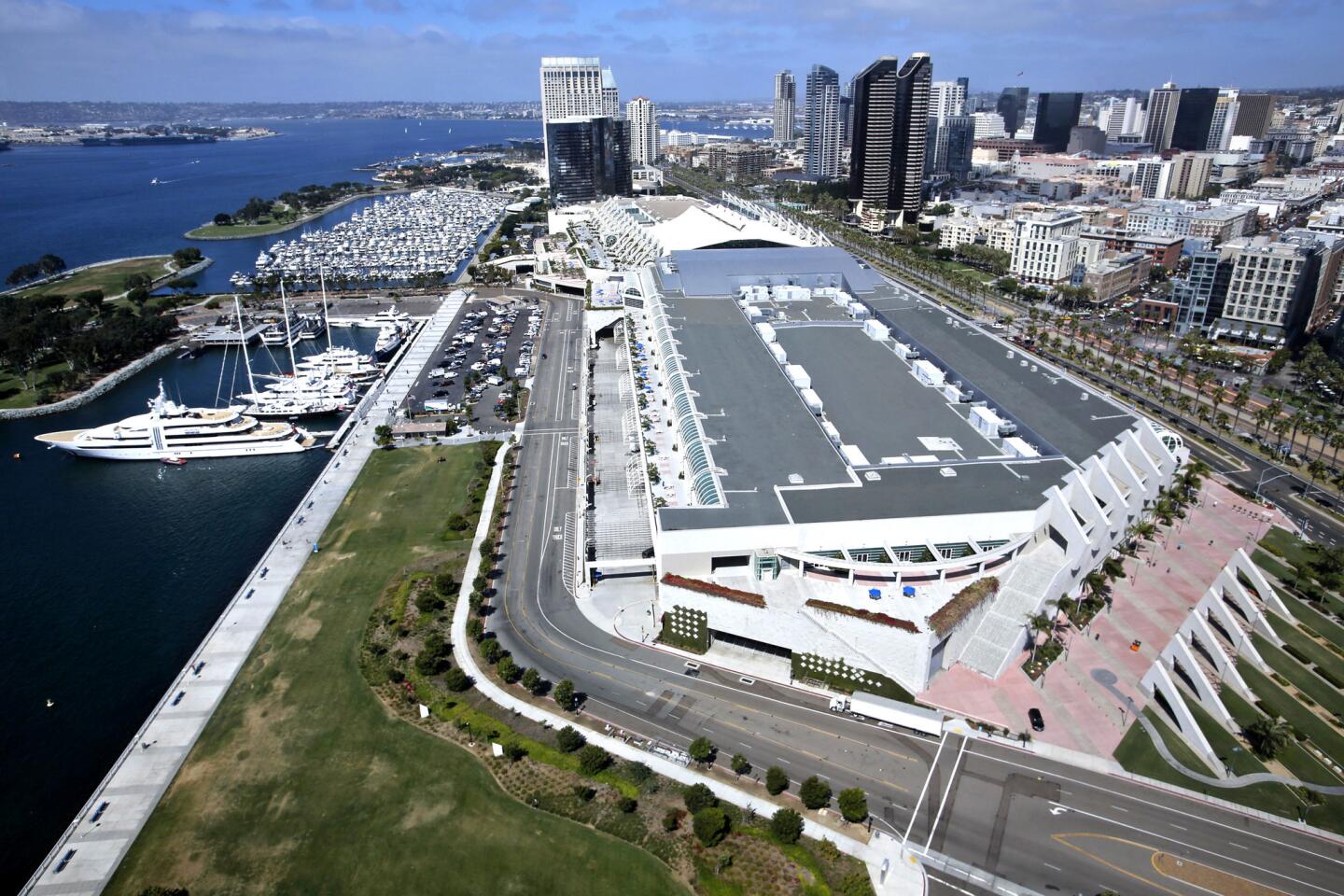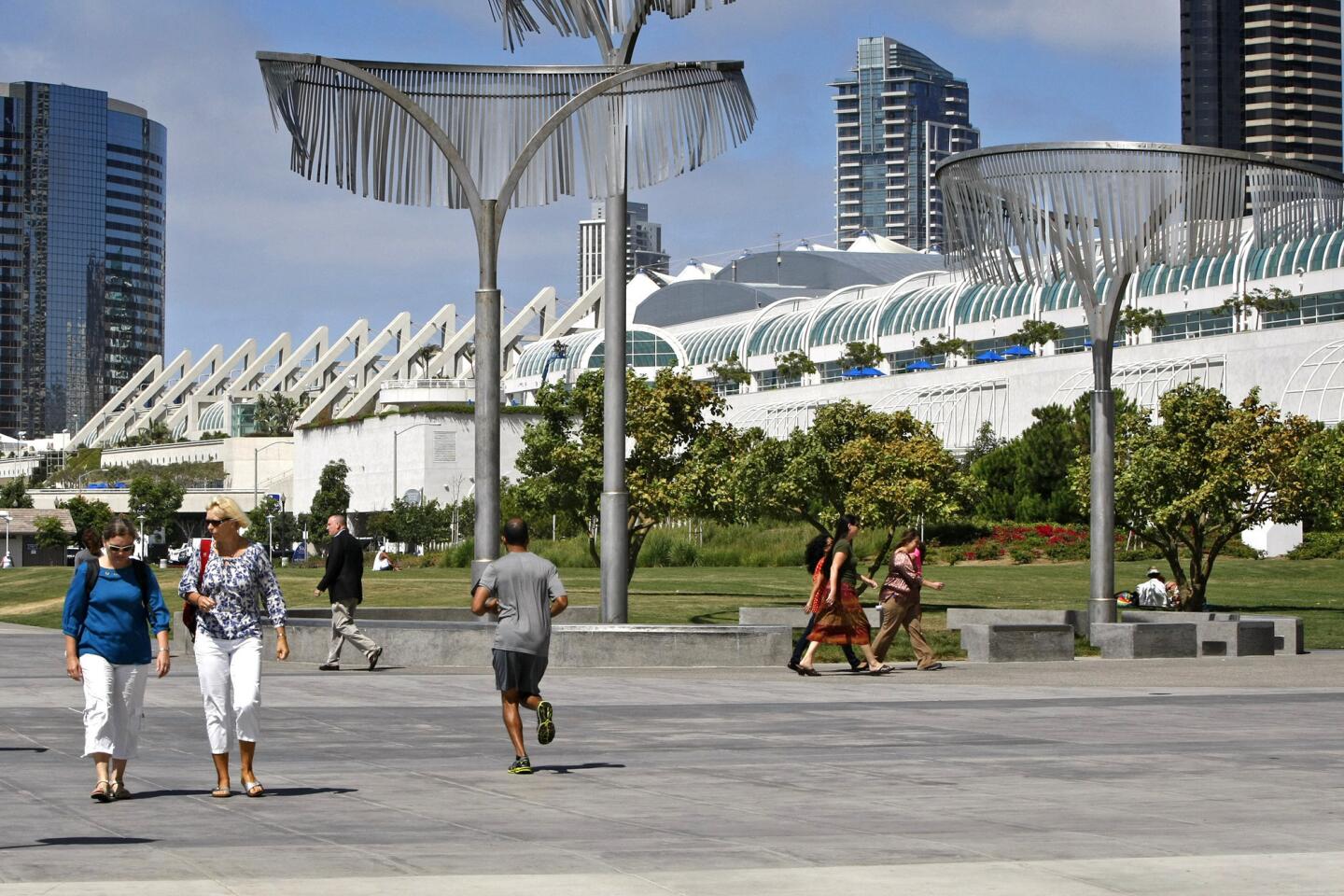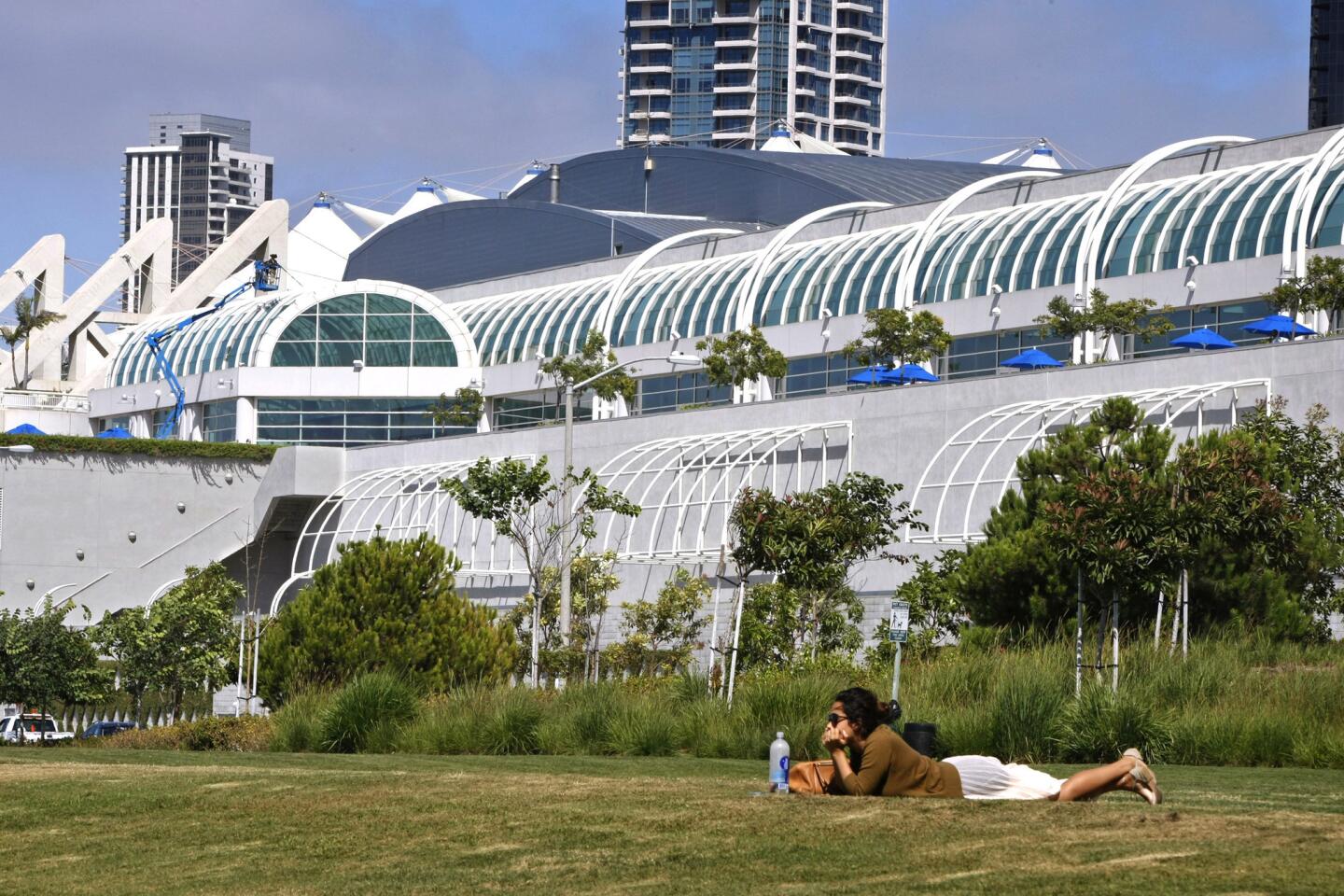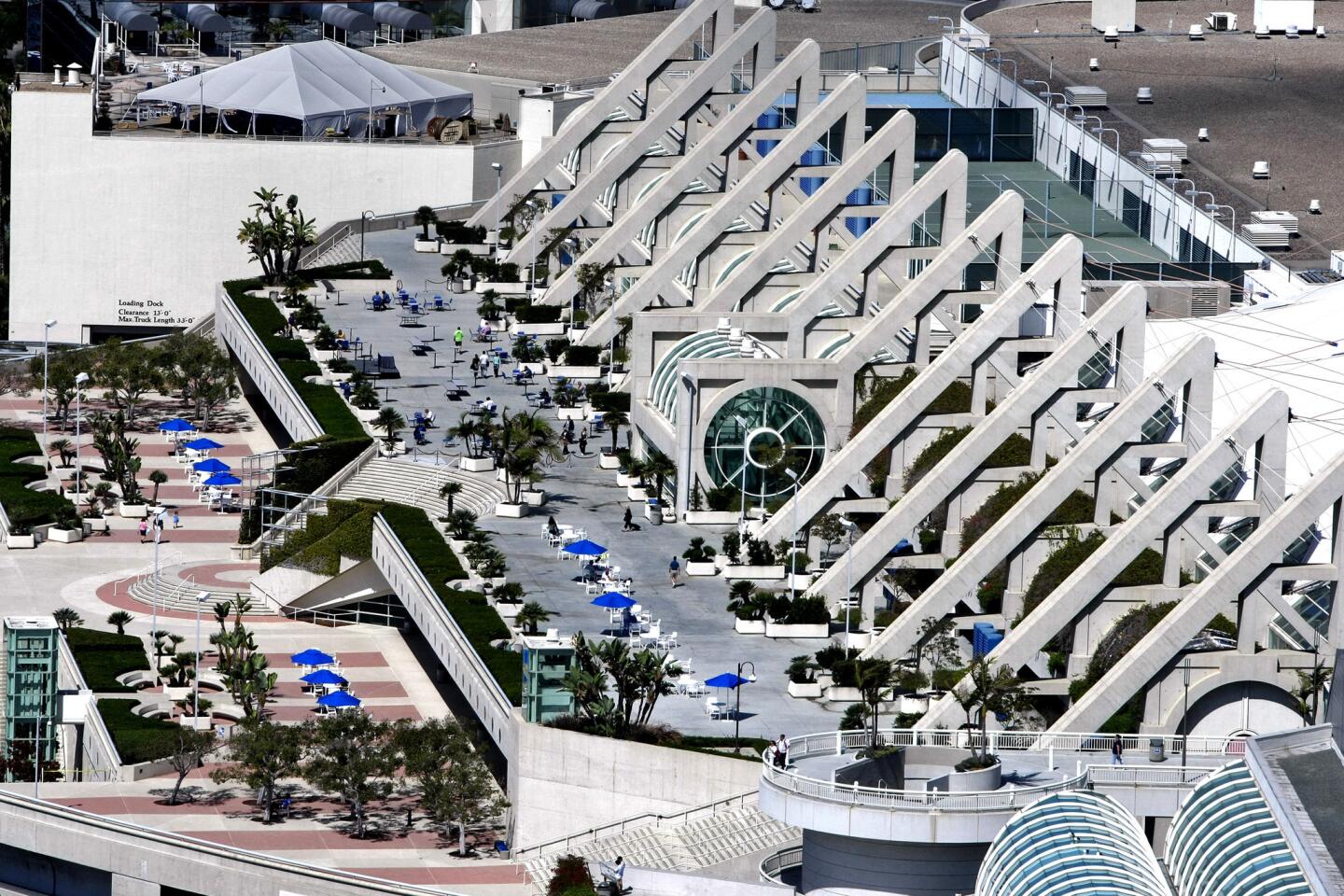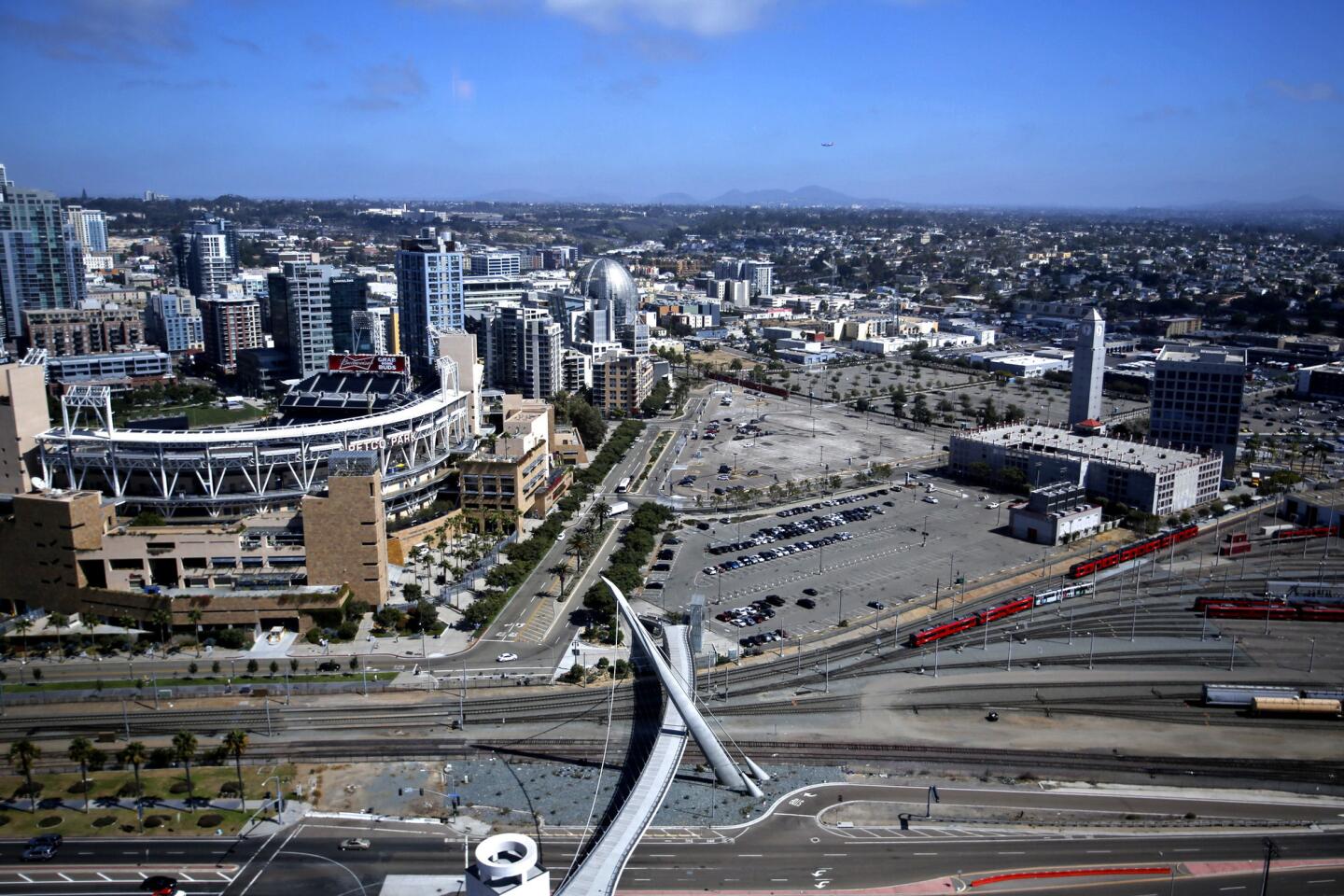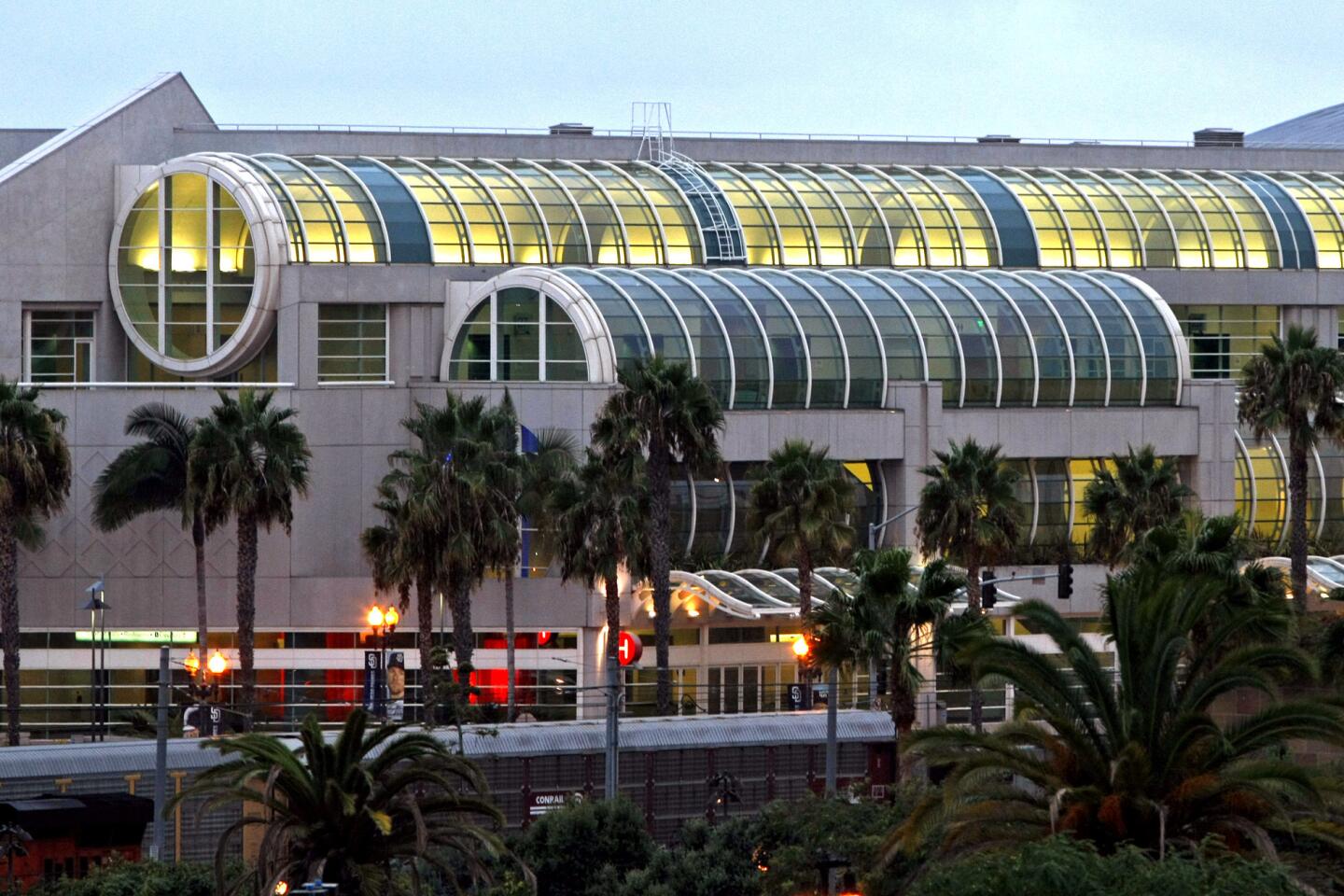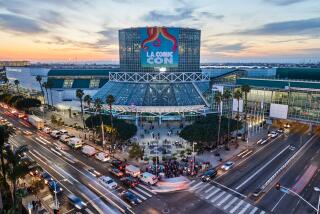Comic-Con, Chargers press San Diego for new venues
SAN DIEGO â Of the many attractions that make San Diego distinct from other locales in Southern California, two of the most popular are Comic-Con and the Chargers.
The annual nerd-fest that is Comic-Con is an unrivaled summer explosion of costumed exuberance. And since the flight of the Rams and Raiders nearly two decades ago, the Chargers are the only NFL team in the region.
But to the dismay of civic boosters, the football franchise and the pop-culture extravaganza have both put San Diego on notice that they need better venues or they might have to move, maybe even to dreaded Los Angeles.
So to retain Comic-Con, and to attract even more high-spending conventions, officials have proposed expanding the waterfront San Diego Convention Center at an estimated cost of $520 million.
But the Chargers say the expansion plan would scuttle the teamâs idea for a new home field to replace aging Qualcomm Stadium â which officials say would help the team remain in San Diego.
The convention center expansion proposal, opposed by the Chargers, is set to be debated by the California Coastal Commission at its meeting Thursday in San Diego.
The plan has already been approved by the City Council and the Unified Port District. It envisions expanding the existing center on the bay-front side.
The Chargers say a better strategy would be to build an additional convention venue several blocks away, as part of a joint use with a new stadium, and possibly other tourist-drawing businesses.
The teamâs idea is still on the drawing board but has brought interest from a major designer of convention centers and sports venues, as well as from the financial community.
At the heart of the dispute is the word âcontiguous.â
City officials say it is mandatory that the new space be connected to the existing space. The Chargers, through spokesman Mark Fabiani, contend it is not mandatory and say City Hall and the Port District never truly considered an alternative.
Comic-Con officials support the expansion plan pending before the commission. âAn expanded facility is a good proposition for San Diego,â Comic-Con spokesman David Glanzer said.
Comic-Con was born in San Diego in 1970 when a small band of comic-book fans held a gathering in a downtown hotel. It now attracts more than 130,000 people to an event displaying the latest in comics, sci-fi, anime, horror, animation and other popular arts. Hollywood figures come to pay respect to their fans.
With exploding popularity has come grousing from devoted attendees that Comic-Con has outgrown the San Diego Convention Center, with events too crowded, lines too long and some potential exhibitors turned away.
Los Angeles and Anaheim, both with larger convention centers, have tried to lure the event away.
âComic-Conâs loyalty has been strong, as has their patience,â said Bob Nelson, a governing board member with the port district, which owns the convention center. âBut patience has its limits, and there are great pressures on them.â
One of then-Mayor Jerry Sandersâ final accomplishments a year ago was to persuade Comic-Con officials to extend their contract to use the San Diego center through 2016.
Sanders and other officials hope that by the end of that year the expansion will have been approved, litigation over its financing plan settled and construction well underway.
If San Diego has only a slender hold on Comic-Con, its hold on the Chargers is even more tenuous. Each year after the season ends, the franchise has the option to notify the city that it is leaving, after paying off the remaining bonds from an expansion of city-owned Qualcomm Stadium in the 1990s.
Like the Comic-Con organizers, the Spanos family, which owns the Chargers, has a mantra: We love San Diego and donât want to move, but there are certain business realities to consider.
Although he was able to persuade Comic-Con to add a year to its lease, Sanders was not able to fashion a Chargers stadium plan. Nor was City Hall much engaged with the stadium issue during the nine chaotic months of Sandersâ now-departed successor, Bob Filner.
The convention center expansion proposal includes an additional 740,000 square feet of convention space (to the current 2.6 million), a 5-acre rooftop park and a 500-room expansion of the Hilton, which the hotel chain would pay for at an estimated cost of $200 million.
Major financing for the centerâs expansion would come from a hotel room surcharge that was agreed to by downtown hoteliers and is being challenged in court as an unlawful privatization of the cityâs taxing authority. Lawsuits delayed expansion of Qualcomm Stadium and later the construction of Petco Park, home of the Padres.
Fabiani, a lawyer, warns that the financing plan for the centerâs expansion could be tied up in court for years, possibly struck down, while the Chargersâ plan withers and dies for lack of official interest.
The Coastal Commission staff opposes the convention center expansion because, among other concerns, it could block views of San Diego Bay. The staff also opposed the original convention center plan, which the commission approved anyway.
Fabiani sees the staff opposition as validation of the Chargersâ view that the expansion plan âwas ill-considered and violates the Coastal Act.â
Joining a convention center with a multipurpose stadium is considered key to the Chargersâ plan because of a hope that it would spur other development to make the area into an entertainment zone with shopping, restaurants and more. Without it, a downtown site is a non-starter, Fabiani said.
But Nelson and other officials say convention planners are adamant that a non-contiguous expansion would not be attractive to people who book conventions.
Acting Mayor Todd Gloria said last week he was unconvinced that expanding the convention center at the current location would preclude building a stadium as part of a larger mixed-use development in the eastern part of downtown.
If the commission approves the expansion plan, as he expects, Gloria vowed to begin work with the Chargers the next day to shape a stadium proposal to present to the public as a good deal for both team and taxpayers.
âWeâre a world-class city,â Gloria said. âWe shouldnât have to decide between Comic-Con and the Chargers.â
More to Read
Sign up for Essential California
The most important California stories and recommendations in your inbox every morning.
You may occasionally receive promotional content from the Los Angeles Times.
